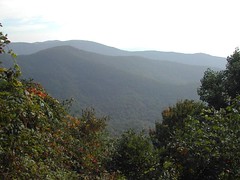Last week's research links, and Wikipedia as news
In the New York Times Magazine, a story by Jonathan Dee: All the News That’s Fit to Print Out, about how Wikipedia is becoming a great resource for breaking news. So good, in fact, that their sister site Wikinews is becoming unnecessary.
It describes how one Wikipedian editor filled in the story on the Fort Dix plot:
Fascinating stuff, including a good look at the editing process, and how it differs from journalism:
Well....there are some pillars of journalism that just seem silly to readers and viewers. And if anyone thinks there isn't a great resource out there for finding future journalists, couldn't this be it?
In fact, according to Dee,
The other links:
Reference:
Strikestar has a current lightning strike map for the U.S. and Canada; other Links for lightning information from Resourceshelf.
Sky and Telescope's Almanac.
Complementary and Alternative Medicine Index from UMd. Medical Center.
World eBook Fair will provide free access from July 4-Aug 4 to World Public Library. This has over 400,000 e-books to download, including audio books. Normal cost is just $8.95/year, but there's also a public access section with over 75,000 free searchable e-books.
Actual Innocence awareness database includes documents, news stories, etc. on wrongful conviction, from UT's law library.
Reports:
The Best Laid Plans: The Story of How the Government Ignored Its Own Gulf Coast Hurricane Plans; press release, documents and full report from CREW, Citizens for Responsibility and Ethics in Washington.
Statistics:
State of the World Population, 2007, links to full document, press kit, charts, and version for youth from UN Pulse.
Governments, Politics:
GovEngine is a new directory of federal, state, local governments and courts.
Tools:
Omgili, a new search engine for discussion forums, recommended by Jon Dube.
It describes how one Wikipedian editor filled in the story on the Fort Dix plot:
...in constant cyberconversation with an ever-growing pack of other self-appointed editors, Gracenotes — whose real name is Matthew Gruen — expanded and corrected this stub 59 times, ultimately shaping it into a respectable, balanced and even footnoted 50-line account of that day’s major development in the war on terror. By the time he was done, “2007 Fort Dix Attack Plot” was featured on Wikipedia’s front page. Finally, around midnight, Gruen left a note on the site saying, “Off to bed,” and the next morning he went back to his junior year of high school.
Fascinating stuff, including a good look at the editing process, and how it differs from journalism:
...Gruen fleshed out the Fort Dix story entirely by searching sources on Google and its offshoot, Google News. During the editing frenzy on May 8, he told me, “There was one dispute where somebody thought we should be using the word ‘alleged’ a lot more than we were, because it was, like, how do you know they were really planning on doing it? But I was kind of against too much use of ‘alleged,’ because, well, I don’t know, I just kind of felt that the F.B.I. was a pretty reliable source.” At which point thousands of dead journalism professors turned over in their graves.
Well....there are some pillars of journalism that just seem silly to readers and viewers. And if anyone thinks there isn't a great resource out there for finding future journalists, couldn't this be it?
In fact, according to Dee,
...when Wikipedia’s function is journalistic, its aim is not; rather than report the news, the goal is to act as a kind of phenomenally fast, bias-free digest of what others have already reported elsewhere.
...Not exactly investigative journalism, but it doesn’t pretend to be; it relies on others for that.
The other links:
Reference:
Reports:
Statistics:
Governments, Politics:
Tools:
Labels: journalism





0 Comments:
Post a Comment
<< Home